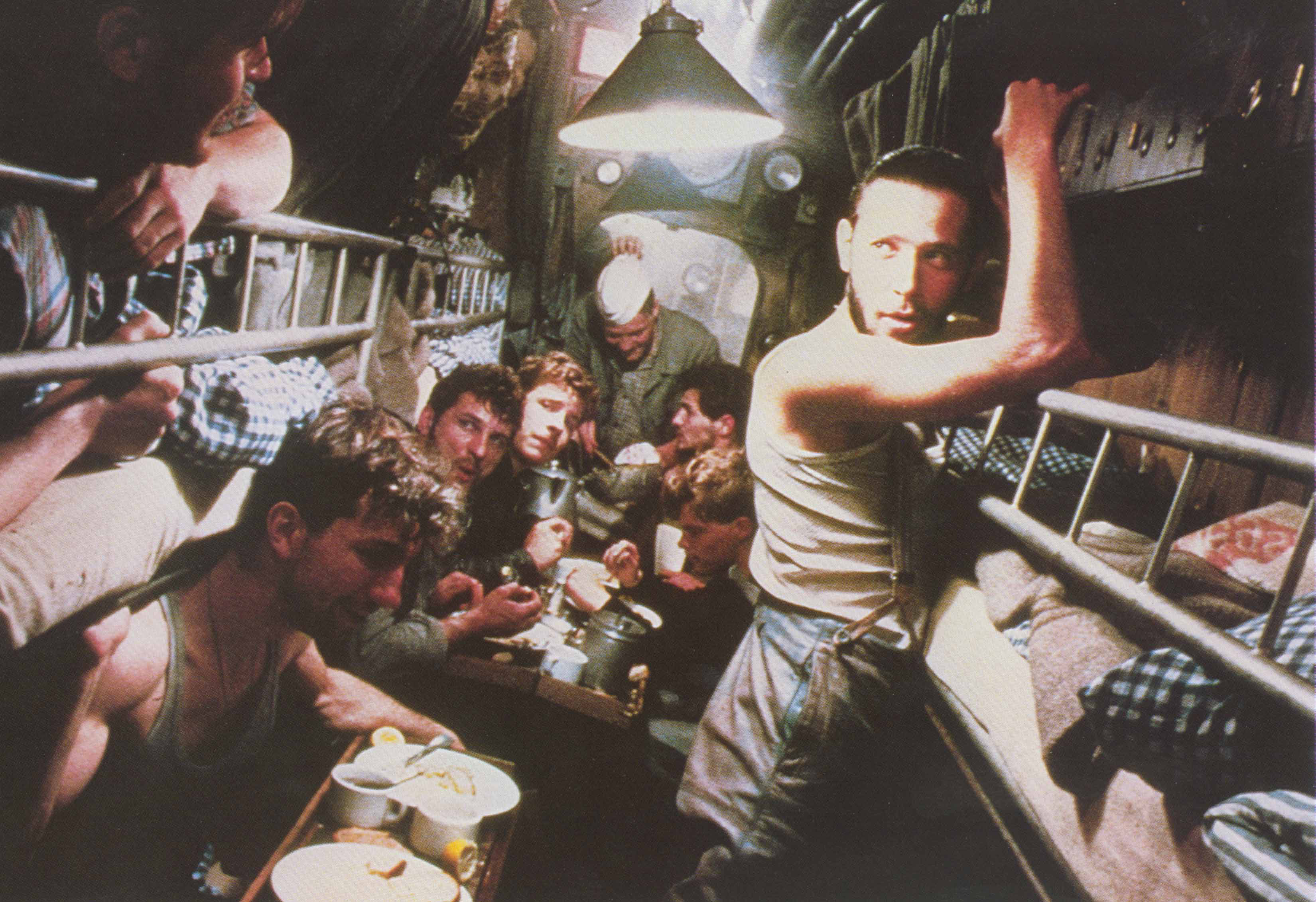Praised as one of the best war movies of all time, Das Boot is certainly the most realistic depiction of life aboard a U-boat during the Battle of the Atlantic, which claimed the lives of 75 percent of 40,000 German submariners. Directed by Wolfgang Petersen, the German film was first conceived as a five-hour television miniseries (ultimately broadcast in 1984-85) but initially abridged for theatrical release in 1981.
Das Boot features plenty of action, from torpedo runs to depth-charge attacks. These scenes are unusually well-done but nonetheless familiar to anyone who has seen a movie about submarines. So for me, the movie’s most compelling element is its emphasis on the physical discomfort and debasements of life aboard a submarine: 50 men crammed into a narrow iron tube, its stale air rancid with engine oil and body odor. By extension, the film conjures something that every veteran knows about military service but of which most civilians can scarcely guess: it sucks.
It sucks to find yourself soaked to the skin by a pitiless downpour—“If it ain’t raining, you ain’t training,” goes a familiar adage. It sucks to be subjected to obscene, tedious, and interminable monologues about sex by the idiot in the bunk next to you. It sucks to be bereft of privacy, for weeks or even months. Every bodily function is public, including those where privacy is urgently needed. An Iraq War veteran once told me a story, indelicate but pointed, about a young soldier on patrol in the broiling desert heat, without even a chemical toilet available within miles for a moment alone, who announced to his comrades that he could deny his libido no longer: he was going to masturbate, and they could watch or turn away; he didn’t care.
Das Boot introduces filmgoers to this degrading world through the observations of a war correspondent—a proxy for the audience—as he accompanies the U-boat on an extended Atlantic patrol. Given an initial tour of the vessel, he is shown its only functioning “head” (navy-speak for “toilet”). The other head, his guide informs him, is being used to store food: “More space for eating, less to shit.” Directly next to the reeking functional head are the crewmen’s bunks. “Most bunks are shared by two guys,” the guide continues. “One sleeps while the other’s on duty. That means when one man comes off watch he climbs into the other man’s stink.”
Mercifully, the correspondent is given a bunk to himself, but otherwise he sees, hears, tastes, feels, and smells everything the crewmen do. Among the sights: an inspection in which a luckless seaman drops his trousers so a medic can examine his genitals with a magnifying glass. “Crabs,” the medic announces before turning to inform a crowd of onlookers, “A whole army of them.” To the humiliated seaman, he adds, “A winkie like yours, they’ll eat it to the bone.” The onlookers howl with laughter.
Among the sounds: a sailor who leeringly explains how to improvise a sex toy from “a cork with a nail stuck in it and a violin string attached on the side of it.” He goes on to explain exactly how the contraption works but trust me; you don’t want to know.
As for taste, the correspondent dines on the same chow as the crewmen, who debate whether the food can be likened most accurately to “old shit,” “baby poop,” or “fresh horse droppings.”
Then there’s the U-boat’s inability to remain dry. When it runs on the surface in heavy seas, gallons of cold saltwater plunge through the main hatch, drenching everyone in the control room and leaving their clothing sopping wet for hours. Sooner or later, every crewman shares this experience.
But it is the stench that dominates everything, and it only gets worse over time. Sweaty feet. Bad breath. Oil fumes. A seaman in his bunk who farts fragrantly, loudly, and abundantly, explaining to a disgusted bunkmate, “It’s gas, you know. These Brussels sprouts.” Most overwhelmingly, the collective body odor of 50 men clings to everything since crewmen go for weeks wearing the same clothes without room or fresh water aboard the U-boat to bathe.
The ceaseless misery is made still worse by the fact that for nearly two months, it is unredeemed by the sighting, much less the sinking, of a single British merchant ship.
In Iraq and Afghanistan, a saying emerged among American troops: “Embrace the Suck,” meaning “The situation is bad, but deal with it.” The crew of Das Boot would have understood the sentiment. Yet this grim acceptance has its limits. “Spirits are abysmal,” the film’s correspondent writes after spending 50 days at sea. “The ordeal is putting human endurance to the test. It’s an experiment to sound out the limits of our ability to suffer.”
It’s an experiment with which most veterans are all too familiar. ✯






